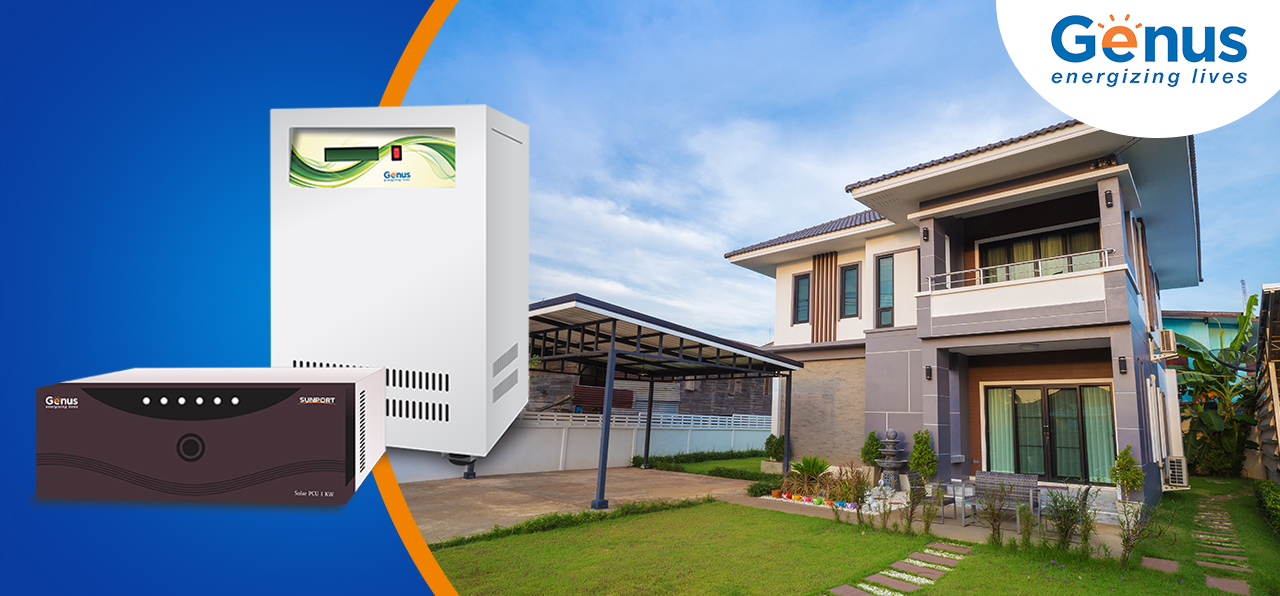
The biggest reason why most Indian households need inverters is because of insufficient or zero power supply in small towns and villages or frequent power outages. Since modern life cannot function smoothly without electricity, inverters are the best backup solution to keep everything from lights, TVs, and fridges to microwaves, washers and computers running. However, buying an inverter once doesn’t mean that you can use it optimally for years. Like any other machine, home inverters might show reduced performance over time or your power requirements might change. Plus, the technology used in inverters keeps advancing with every passing year, especially if you buy from a reputed manufacturer.
So, check out the top reasons why you should upgrade your inverter at home:
1. Your load requirement has increased
The more devices you buy or wish to run during a power outage, the higher will be your load requirement. In other words, if you now want to run ACs on an inverter that was used to running only fans, the electricity required will be more. Hence, your current inverter won’t support these needs. If you try to exceed the inverter capacity, it can get burned out or the associated appliances might be harmed. Note that a major indicator that the load is more than what the inverter can handle is less backup time.
So, consider your power needs and VA (Volt Ampere) rating when you decide to upgrade the inverter:
(a) Power requirement refers to the total power consumed by the appliances that you wish to run on your inverter.
(b) VA rating refers to the current and voltage of the inverter that is spent for operating the appliances.
2. Inverter not charging properly or completely
Did your inverter suddenly stop charging or is not charging completely? It might be due to a dead battery or some issue with the grade separators. Replacing the battery might help in that case. But, charging problems can be due to rusted terminals, burnt rectifiers, electrical fault in the main board, or fused active material too. So, contacting the manufacturer’s customer support centre or consulting a technician is recommended before you decide to upgrade the inverter.
3. The batteries are acting up
Is your inverter alarm beeping repeatedly? Or wrong codes are being displayed on the monitor? Problems related to battery cables or wiring can be the reason. Or, your inverter might be switching from the main grid to the battery every now and then. So, get in touch with customer care and request a maintenance check, to decide whether to get the battery fixed or upgrade the inverter. If you want to get new batteries, note that the tubular ones are the most efficient and long-lasting.
4. You can hear a hum when the inverter is in backup mode
The humming noise is often due to waveform deterrence. This usually happens when you have an old inverter which uses the square wave technology. Hence, upgrade to a sine wave inverter to get better power backup and zero noise. Those inverters that have higher ratings also boast better construction, superior materials and more convenience.
Also Read: Why Sine Wave Inverter is Better than Square Wave?
5. You cannot turn on the inverter
Usually, disconnected or weak battery, lose battery terminals or a tripped inverter is the reason behind this problem. If you see that the power switch is defective or the battery is faulty, contact the customer care for repair or replacement. If an overload caused the inverter to trip, you need to press the button for trip reset. If the battery terminals are loose and corroded, clean these well before fixing them back firmly. And if the inverter is pretty old and facing such problems, it’s time for an upgrade.
Apart from the reasons stated above, if you feel that your current customer support team is not responsive or efficient, you should consider upgrading your home inverter. After all, not only do you need consistent and stable power supply at all times, but you also need to protect your appliances from short circuits. So, a malfunctioning or poorly performing inverter will not do. Just remember to research well, compare different manufacturers and read reviews before you get a new inverter.
